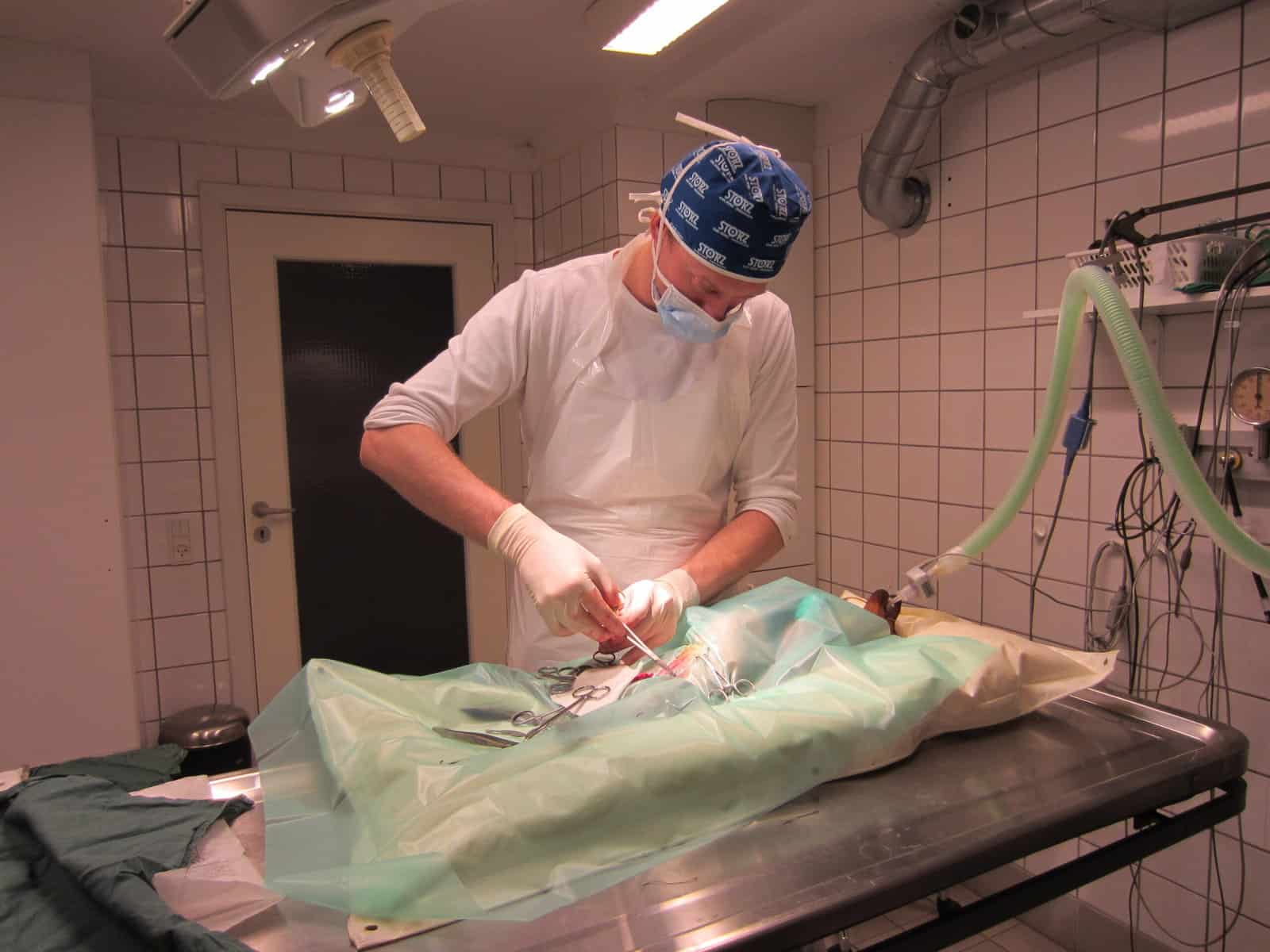When it comes to protein allergies from meat, such as beef, chicken, duck, pork, and turkey, the first signs in dogs may include vomiting and skin itching. This has led to the myth that too much protein can cause allergies in dogs.
But is this really true? Let’s explore and debunk this myth by looking at the facts. It’s important to carefully observe your dog after introducing new foods to its diet to monitor for any adverse reactions.
Roadmap
Diagnosing and managing allergies in dogs is a step-by-step process, and require adjustments when changes and relapses occur.
You’re in the management stage…

Key Takeaways
- Dogs can be allergic to specific types of protein, not the amount of protein in their diet.
- Dogs are carnivores and their natural diet consists mainly of meat, so a high-protein diet is generally not harmful.
- Sudden changes in diet, including switching from a carbohydrate-rich diet to a protein-rich diet, can cause intestinal upset in dogs, but this is due to the abrupt change, not the protein itself.
- Some dogs may be more sensitive or allergic to certain types of proteins, which can manifest as itching or skin irritations, but this is not related to the amount of protein, but rather the type of protein consumed.
It can be deceiving, as your dog might like the meat and feed on it very first, but the internal body disagrees with the food. Such a case can make your dog suffer from anaphylactic shock, which though rarely occurs, can lead to the death of your dog. If your dog, after eating a new type of food, exhibits breathing difficulties such as gaggling, coughing, and swelling of the face, get it to a professional for medical examination.
Since dogs are carnivorous, meaning that their main source of proteins is meat, the most common dog proteins are beef, chicken, duck, pork, and turkey. However, Venison, rabbit, kangaroo, rabbit, alligator, bison, and insects are novel foods for most dogs. It is even possible that your dog has never eaten such foods.
These novel proteins are less likely to cause allergic reactions in the dog’s body.
Which Are The Signs of Dog Allergy?
An allergic condition in different dogs can have different signs. The deadliest allergic reaction a dog can have is anaphylactic shock. This is not the most common reaction to protein though.
Minor signs that you are most likely to encounter are:
- Itching of the skin
- Hives
- Redness of the skin
- Skininfektion (dermatitis)
- Diarrhoea, and
- Vomiting
What Happens When a Dog Has Too Much Protein?
To begin with, you already know, that there are rare cases of humans who have a protein overdose. To be diagnosed with a protein overdose, a human must be fed pure protein meals. Even a search on Google on human beings who have been diagnosed with a protein overdose will prove it ridiculous.
According to research, dogs, when left on their own, meals consist primarily of the other animal’s flesh. Most dead dogs’ stomachs consist of about 97% of animals’ flesh. Dogs will benefit more when they eat only meat, even in large amounts.
So in short…
Nothing will happen if you feed a dog a lot of meat. They are carnivores, and you should not expect them to feed on anything else other than meat except for minerals from bone and cartilage. If dogs react allergically to protein it’s not because of the amount, but the specific type that individual dog might be allergic to. Dogs have evolved so they can also digest carbohydrates, but they don’t strictly need them.
A rabbit and rat’s body, which dogs eat, is made up of around 70% of protein and 30% of fat. That means that this is the average meal content of a dog. Humans are advised not to feed on excess proteins because it reduces kidney functionality.
Can a Dog Be Allergic To Too Much Protein?
In my whole career, I have never diagnosed a dog that has consumed proteins in excess. It’s simply not possible. And, I would not be wrong to say that there has never been a dog diagnosed with eating much protein, unless in the case of eating excess wrong proteins. It is about quality and type – not quantity. A dog is a carnivore; carnivores were created to feed solely on meat.
That being said, sudden changes in diet and/or overeating can cause pretty unpleasant problems in dogs.
If a dog is used to one type of carbohydrate-rich diet and suddenly changes to a protein-rich diet, it can certainly cause intestinal upset. This is not because of the protein amount though. Rather it’s for the sudden change itself.
Also, if a hungry dog greedy puppy eats too much it can also cause problems. Whether this is protein or not is not really an issue. It will cause problems either way.
A third misconception about high protein intake comes from constipation following eating too much bonemeal or bone material. The intestinal obstruction in this case does not come from the protein but from the small pieces of bone that get past the acid in the stomach.
Can High-Protein Dog Food Cause Itching?
Itching is one of the more common signs of an allergic reaction in a dog. Other signs include redness of the skin, vomiting, swelling of the face, and diarrhoea. An allergic reaction happens when the immune system in the body recognizes or misidentifies a protein in the body as a foreign thing that has the potential of causing an illness.
Many pet owners may wonder if feeding their dog high-protein food can cause itching, and it’s important to understand that it’s not the amount of protein, but rather the type of protein that can trigger a reaction in dogs.
Some dogs may be more sensitive or allergic to certain types of proteins, and this can manifest as itching or skin irritations. Common sources of animal-based proteins in dog food include chicken, beef, lamb, and fish, among others.
Dogs with healthy digestive systems and no known allergies or sensitivities to specific proteins are generally able to tolerate high-protein diets without any issues.
However, for dogs that experience itching or other signs of discomfort after consuming high-protein food, it may be worth considering switching to a different protein source or consulting with a veterinarian to determine the underlying cause of the reaction.
Should Older Dogs Eat Less Protein?
The puppies and the older dogs require more proteins than the other dogs. In old age, a lot of wearing out of many muscles requires repairs, hence creating the need for more proteins.
When a dog becomes old, it’s digesting capability does not reduce. It remains the same, and it should not worry that the dog might suffer from indigestion and experience abdominal pains that can be mistaken for meat allergy. Provided that you give it good-quality proteins.
Conclusion
In conclusion, the myth that too much protein can cause allergies in dogs is not supported by scientific evidence. Dogs are carnivores and their natural diet consists primarily of meat. Protein allergies in dogs are typically caused by specific types of proteins, not the amount of protein consumed.
Sudden changes in diet, overeating, or feeding inappropriate proteins can cause digestive issues in dogs, but it’s not related to the protein content. It’s important to carefully monitor your dog’s reactions to new foods and consult a professional if any adverse symptoms occur.
High-protein dog food is generally well-tolerated by dogs with healthy digestive systems, but dogs with known allergies or sensitivities may need special consideration.
Always consult with your veterinarian for personalized advice on your dog’s dietary needs.

This article is written by…
Hayden Parker (He/Him) is a skilled veterinarian (DVM), and course instructor. With a focus on high professional competence, credibility, and respect.
As a family man, podcaster, and digital marketer, Hayden runs several websites.
His value statement centres on thoroughness, honesty, integrity, transparency, and respect for animals, owners, and fellow professionals.




